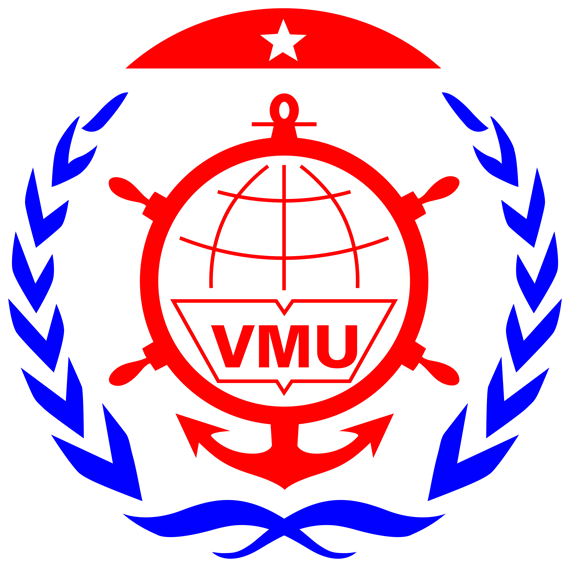1. Introduction
|
Program title: |
Bachelor of Industrial Automation Engineering |
|
Graduation degree: |
Bachelor's degree |
|
Study model: |
Full-time |
|
Total credits: |
137 |
|
Used language: |
Vietnamese |
|
Training duration: |
4 years (8 semesters) |
|
Responsible Faculty: |
Faculty of Electrical - Electronics |
|
Website: |
|
|
Address: |
Room 301, 3rd floor A4 Building, Vietnam Maritime University 484 Lach Tray - Le Chan - Hai Phong |
The Industrial Electrical Automation program is developed, evaluated, and issued by the Faculty of Electrical and Electronic Engineering, Vietnam Maritime University. The program draws on curricula from prestigious universities specializing in automation. It is periodically reviewed, updated, and revised to meet the practical needs of graduates, as well as to fully comply with the regulations of the Ministry of Education & Training and Vietnam Maritime University. Students participating in the program are trained not only in knowledge but also in skills and attitudes, meeting the Vietnam National Qualifications Framework and various international requirements for 21st-century workforce competencies.
The program is designed to align with the educational philosophy of Vietnam Maritime University: "Intellect - Creativity - Responsibility - Humanity." Its mission is to train high-quality human resources to serve the strategy of marine economic development and the cause of national construction and defense, international integration in general, and the coastal industrial sector in particular.
The program aims to train bachelors in Industrial Electrical Automation. Graduates of this program are capable of designing, implementing, and operating industrial control and automation systems, are dynamic, creative, adaptable to any work environment, and can compete with human resources in the Asia-Pacific region, serving marine economic development and national construction, defense, and international integration.
Graduates of the Industrial Electrical Automation program can work at:
- Factories, enterprises, and companies with automated production lines in industrial, agricultural, medical, telecommunications, energy, mineral exploitation and processing, and shipbuilding sectors.
- Technical material import and export; Equipment registration; Strategic planning for automation projects.
- Technical consulting enterprises, electrical and automation equipment trading or technology transfer; Control and automation technical service trading companies.
- Domestic and foreign companies in control and automation, such as: design, analysis, operation, and technical maintenance in modern industrial production lines, such as: automobile assembly, aviation automation, power plants, food processing plants, building material production, paper production, etc.
- Institutes, research and development centers in the field of Electrical, Electronic, and Automation Engineering.
- Universities, academies, and colleges with automation fields.
2. Curriculum
The Bachelor of Industrial Electrical Automation program is organized into 8 semesters:
- Semester 1: Students acquire foundational knowledge and skills through basic courses such as: Calculus, linear algebra, physics; Understanding of law; Understanding of control and automation engineering and the Industrial Electrical Automation major.
- Semester 2: Students continue to accumulate foundational knowledge for advanced specialization in subsequent semesters; Begin accumulating basic knowledge of control and automation engineering.
- Semester 3: Students continue to accumulate and enhance basic knowledge for the Industrial Electrical Automation major; Programming and foreign language skills are also accumulated in this semester.
- Semester 4: Provides specialized knowledge and skills in control and automation engineering through courses: Power Electronics; Electrical Drive Fundamentals; Measurement Techniques; Microcontroller Techniques.
- Semester 5: Provides foundational knowledge and skills in the Industrial Electrical Automation major through courses: Process Control, Hydraulic and Pneumatic Control Techniques; Control Programming Techniques…; Students are trained in project design skills through major assignments and projects.
- Semester 6: Provides specialized knowledge in the Industrial Electrical Automation major: Control Systems Using Programmable Logic Controllers; Robot Control Techniques; Design of Power Supply Systems for Loads; Computer-Based Automated System Control Techniques….
- Semester 7: Advanced specialized knowledge and skills in the Industrial Electrical Automation major: Digital System Control Techniques; Application of Artificial Intelligence in Automation Systems; Enhance design capabilities through the Industrial Machine Project Design program.
- Industry and specialized skills such as teamwork, presentation, design, and operation are accumulated through courses in the program, with internships playing a crucial role. Students undergo two specialized internships and a graduation internship.
- In the final semester, students consolidate their learning through practical applications. The graduation internship immerses them in real-world challenges, and the Graduation Project demonstrates their ability to integrate and apply knowledge from previous semesters.
